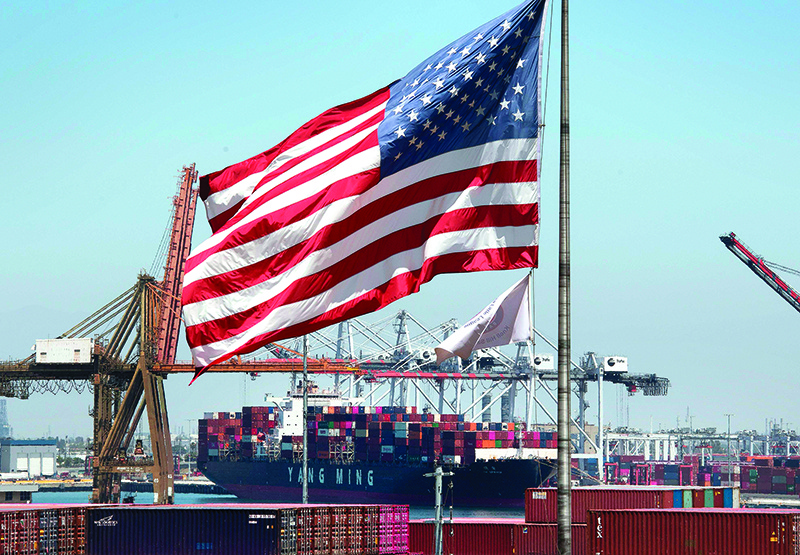

WASHINGTON: Amajority of economists expect a US recession in the next two years, but havepushed back the onset amid Federal Reserve actions, according to a surveyreleased yesterday. The survey came out after President Donald Trump pushedback against talk of a looming recession as a raft of US data reports last weekshowed a mixed picture on the economy.
"I'mprepared for everything. I don't think we're having a recession. We're doingtremendously well. Our consumers are rich," Trump told reporters Sunday."I gave a tremendous tax cut, and they're loaded up with money. They'rebuying. I saw the Wal-Mart numbers, they were through the roof," he said.
"And mosteconomists actually say that we're not going to have a recession. But the restof the world is not doing well like we're doing." His chief economicadvisor Larry Kudlow also downplayed talk of a recession. "I sure don'tsee a recession," he told NBC's Meet the Press.
"Consumersare working at higher wages. They are spending at a rapid pace. They'reactually saving also while they're spending... So I think actually the secondhalf, the economy's going to be very good in 2019," he said.
"We're doingpretty darn well in my judgment. Let's not be afraid of optimism." TheNational Association for Business Economists (NABE) found far fewer experts nowthink the next recession will start this year compared to a survey in February.NABE conducted its policy poll as Trump put the Fed under constant attack,demanding more stimulus, but before the central bank cut the benchmark lendingrate on July 31.
However, the Fedwas already sending strong signals that it intended to pull back on the rateincreases made in 2018 due to concerns starting to dog the economic outlook,including the trade war.
Trade warskepticism
"Surveyrespondents indicate that the expansion will be extended by the shift inmonetary policy," said NABE president Constance Hunter, who is chiefeconomist at KPMG. Only two percent of the 226 respondents now see a recessionthis year, compared to 10 percent in February's survey, NABE said. However,"the panel is split regarding whether the downturn will hit in 2020 or2021," Hunter said in a summary of the survey, which showed 38 percentexpect a contraction of growth next year, while 34 percent don't see it untilthe following year. More economists shifted their recession prediction to 2021,narrowing the gap from the prior report, which had many more expecting thechange next year.
The results show46 percent expect at least one more rate cut this year from the Fed, whileabout a third see policy holding where it is now, with 2.25 percent as the topend of the policy range. Economists are skeptical about a resolution to Trump'strade wars, although 64 percent said a "superficial agreement ispossible," NABE said. But that was before Trump announced another round oftariffs of 10 percent on the remaining $300 billion in goods not yet hit by USpunitive duties. The new measures will take effect in two stages, on September1 and December 15.
As Trumpcontinues his vocal campaign criticizing the Fed, the NABE survey foundeconomists are concerned about the impact: 55 percent said his remarks do notinfluence Fed decisions but do "compromise the public's trust in thecentral bank." And over a quarter of respondents said the criticism will"cause the Fed to be more dovish than otherwise, thus threatening itsindependence." The survey also asked about fiscal policy, and a majorityof economists said Trump's tax cuts "had an overall negative impact onhousing activity over the past 18 months," due to changes in deductionsallowed for mortgage interest. - AFP


